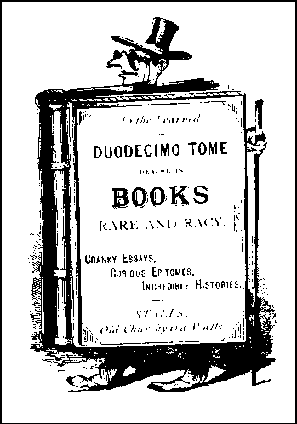Bonehead
English
How to Make
Students Shine
(Despite Themselves)
Part I

When I got hired on at our local Catholic University, I was beside myself. "At last," I thought to myself, "A job." Four years of graduate school was finally paying off.
I wasn't too concerned with the prevailing devotional spirit of the school. I would have said Pater Nostrodamus or whatever they called it if they were going to let me in the door. Hell, I even would have gone to Confession, even confessed the lesser of my sins if it would help me hang onto my job. Butter wouldn't melt in my mouth.
I was given the title of "Adjunct Professor," an impressive title with little to go along with it. My office was half-a-hallway. My desk was old, wooden, and bruised from many years of being tormented by adjunct professors tormenting their students.
One of the classes they gave me to teach was beginning journalism. The second was English 101, which, I found out later, was commonly known as "Bonehead English." I was told that my students had "some problems" --- that is, they had flunked the basic English comprehension test given to all incoming students.
Since I was an inveterate journal-keeper myself, I immediately hit upon the idea of diaries. During our four months together, I told them, they were to keep journals. They were not to bother about grammar or spelling or punctuation: that wasn't their (or my) job.
"Just write about what's going on in your life. Write it all: memories, dreams, reflections, plans, problems, loves, hates. It's your baby," I said. "I'm only interested in your word count."
"Take the journal with you everywhere," I told them. "In the school cafeteria, in your dorm, on the bus, in the park --- even other classes if you don't get caught."
I explained that once a month we'd have a word count: they would estimate the number of words they had written, would announce the result to the whole class. "Some would think it was competition," I explained. "I'd rather think it was a chance to show your affection for words."
I said I would take a look at their journals from time to time, but emphasized that whatever they wrote was between them and the page. "I'm not there to comment on your life; I'm there to teach you English. What you write down is confidential."
I let them know that their other work was important but these journals were the core of the class, and that those who had the most numbers of words would do best and that their diaries would count for at least half of their final grade.
§ § §
Let me tell you what was weird about these journals. First off, I found that they turned out to be practically free of grammatical or spelling mistakes. Compared to the two or three formal papers I had them do ("Hamlet," Pride and Prejudice, Great Expectations) they wrote with a minimum of errors and a maximum of what the professionals call "communications skills."
Second, most of them produced prodigiously. Most put out 3,000 to 5,000 words a week. By the end of the semester, some of them had come up with over 100,000 words --- equal to The Great Gatsby, in quantity if not in quality.
But wait. This was Bonehead English, right? Yet with a couple of exceptions their stories were fun, or funny, or sad --- and in a couple of cases, downright gripping.
Now, so many years after the fact, I can still remember three of the best. One lovely young girl (she swept into class like a breathless, red-cheeked princess) was carrying on a torrid affair with a young gentleman, in a secret apartment a mile from campus. They had a good times together --- and a good time hiding it all from their parents, and from the school. (It was, after all a Catholic School, trying and failing to act in loco parentis).
They also gave me a kick because I was allowed to read their pillow talk (he called her "Heffalump," she called him "Pooh-bear.") I learned about their fights and their making up --- he made fun of her mum, who was short and fat; she didn't like his moustache. Most of all, the diary, written flowingly and well, let me see two young people filled with what we in those days thought of as an innocent passion.
The second surprise journal came from the hands of the captain of the school football team. The clichés didn't work here. He was a serious young man, worried about his life, and the world, and his future. His ended up being near the top in number of words --- I think he did almost 140,000.
And his family! His father --- he was a famous magnate in town --- was a rich and brutal drunkard, a swiving scoundrel. When he wasn't making money, he regularly swatted his wife and (until he came of age) his one son.
Parent's Weekend was a disaster. Not the writing: the event. Mother and son were desperate to keep the old bastard from ruining their time together, but he managed to fall out of his chair at dinner and damn near kill them driving back to the school.

